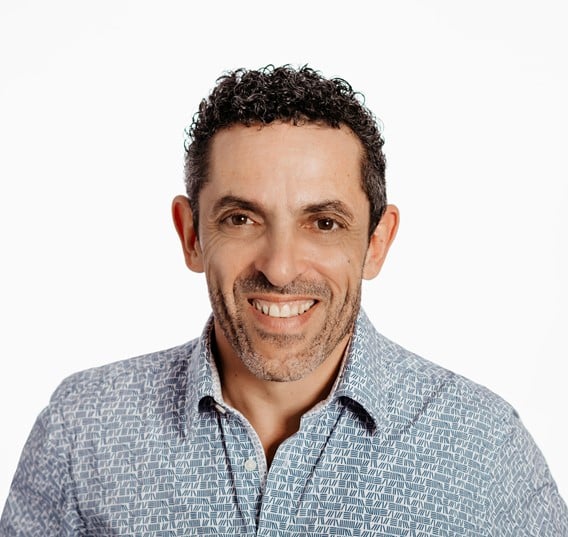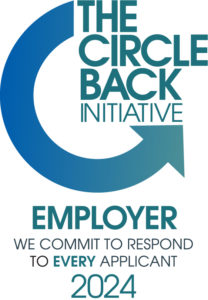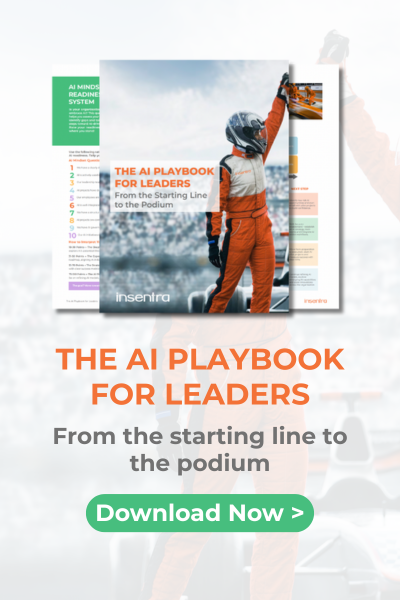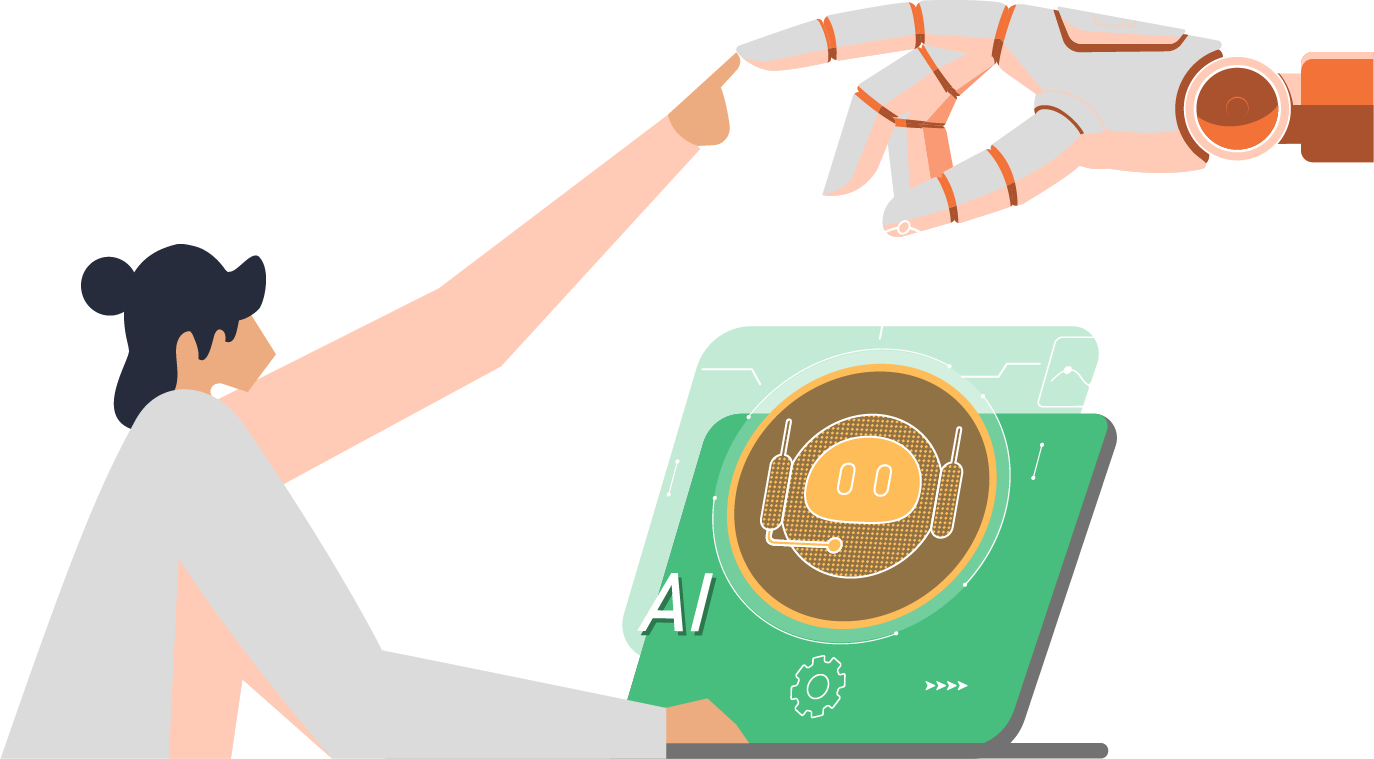The Download with Ronnie Altit ft Chris Greatrex
In this episode, Insentra’s CEO, Ronnie Altit, is joined by Chris Greatrex, the managing director of Insentra’s long-term partner, Artis Group. Hear Chris share details around where he’s taking his business, the power of specialization, the importance of dynamics, as well as how to partner with other organisations when you are a specialist company. Chris also talks about his military background and its relevance in the industry, and how he brings that into his business. This is surely going to be one enjoyable talk to listen to.
TIMELINE / KEY POINTS:
0.38 – Learn about Chris’s background and what he does before he started in the IT industry.
6.30 – Chris talks about the emerging trends that organisations like themselves and resellers are facing at the moment.
8.40 – When we need to migrate people o to Office 365, whatever, then we’re going to go to partners like Insentra to get that job done.
8.54 – Chris reveals the key things they’re looking for in an organisation they’re going to partner with.
13.36 – Hear Chris talk about the challenges that he sees organisations are having right now and where he thinks the market’s going to shift to.

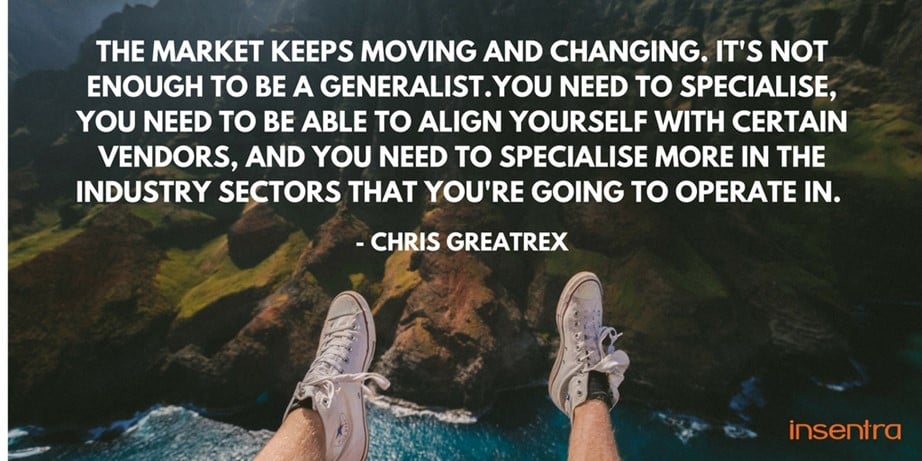
READ THE TRANSCRIPT
Ronnie Altit: Welcome to the Download. Today I am here with Chris Greatrex. Is that how I pronounce your name
Chris Greatrex: Chris Greatrex. My nickname at school is Greatrow.
Ronnie: Greatrow?
Chris: Yes.
Ronnie: And what a Greatrow mean?
Chris: Well, it was just I was getting on a bus for some sports event and the sportsmaster called out, “Hey, Greatrow, you get on the bus.” It stuck as my nickname ever since.
Ronnie: The way it works for guys. Chris is the managing director from Artist Group, one of Insentra’s partners. Welcome to The Download, welcome to sitting on the couch and having a chat.
Chris: Thanks for having me.
Ronnie: Tell us a little bit about your history. You’ve got a fascinating history. IT’s not where you started here. You’re an American citizen, you were in the navy, tell us a little bit about your background.
Chris: My first creation set, I went to the Defense Force Academy after leaving school, had an amazing twelve-year career in the navy. Got the opportunity to fly an aircraft and navigate patrol boats, and get involved in search and rescue operations, spent time in destroyers, destroyer escorts. Ultimately, I was convinced by one of my captains to join the submarine service. Something that I wasn’t particularly looking to do.
I’ve been actually getting back to Neutral Bay when the submarines were based here on Neutral Bay. The first time I went to sea in a submarine I knew I could not come back to service ships because the operational on the battlefield picture here from the submarine is phenomenal, and people just can’t find you. From an operational warfare perspective, it was the place to be.
Living in submarine is not for everybody. I didn’t think I’d take to it but I really enjoyed it. I love the operational nature. You mentioned how I started in IT, but when you’re operating with combat systems, and then you’ve got an engineering systems and all that electronics involved in those submarines, it’s trickier than new submarines, the Collins class that I ended up moving on to.
There’s a lot of technology involved. We were involved in a lot of the testing and putting to work fairly complex information systems which basically gave me a, I guess, bit of an insight into technology. Then just the way the command process is working out and the new submarines, the new Collins class, some of the delays in the builts, I took the opportunity to leave at the age of thirty, come back to Sydney, work the the Sydney Olympics. Because I had mobile communications experience with the submarines, I managed to get a great role working around the Sydney Olympics which then was like a springboard into moving into the IT industry.
Ronnie: You spent some time at KAZ?
Chris: Yes. Initially, Aspect Computing. In fact, as I happen to be doing a consulting gig in Canberra, a guy pulled me over as I was running around Lake Burley Griffen, he said, “Look, you got to talk to these guys at Aspect Computing.” Another ex-submariner who was working at Aspect at the time. You need to talk to this guy at Aspect Computing and like, “No, I’m happy with what I’m doing.”
Convinced me to talk to them, and I did. Guys like Pete Raney and Roger Davis, couldn’t help but like them. I decided to go work with them. Everything really just took off from there. We then, ultimately, merged with KAZ, and then that business was sold to Telstra in 2004, and then 2005, we started Artis Group.
Ronnie: Okay, and what was the brainchild behind Artis Group?
Chris: Well, once we built up KAZ, really, the three thousand people, and had sold it to Telstra– again, we’re talking 2004. I think Telstra’s a very different business then. We could see that perhaps the integration wasn’t going, probably, according to plan. We really wanted to get back to having probably a more nimble IT business. After twelve months, we negotiated an exit from Telstra to be able to start Artis Group.
Ronnie: Fantastic.
Chris: A lot of it is really just getting back to basics. Starting out an IT company we’ve always think about doing, and really fulfilling that ambition we wanted to do.
Ronnie: It’s twelve years ago now.
Chris: Yes, that’s right. It’s going like that. I went to launch the business. I pretty much went straight to the US at that point because I had family commitments over there. My ex-wife is American. We had decided once we had our first baby we’d go to the States. We sort of setup the basic frameworks at Artis Group. I went out to the US to work for a company over there where we wanted to take Artis Group.
I’ve got a chance to work with a major company over there. It was actually based out of upside New York. I opened up the New York City operations. That went really well, particularly during the time of the GFC. We were ultimately acquired by another larger company, like a $1.6 billion company, and they continue to grow. Sirius Computer Solutions, they’re about to buy a Forsythe Consulting, in fact.
That was also another great experience. Really, I fell in love with New York. I maintain the house over there still. I do the travel you do, but I do like to get back there when I can. Having that jewel sit in the ship and having my kids with jewels in the ship means I’ll probably continue to have that relationship with the US, but probably more New York and the Northeast.
Ronnie: And so Artis Group operating there as well?
Chris: No, we’d done some business over there. We had actually done some work with US Navy. We were doing work with US Navy before we do any work with our own defense department. It’s a bit of a shame. I put that story up a few times with various defense procurement people. We are now doing work with defense today. Really, most of the export work we do, or the only other export work we do today it would be to Thailand.
Ronnie: Okay. You’ve been in the game for a little while. It’s interesting as well one of the things you mentioned which I’m going to talk to you off camera about is a little bit about flying planes because that’s a passion of mine. You’ve done in the air and under the ocean as well, all in the Navy, which is quite interesting. Having been in the industry, having worked in the channel for a while, what are you seeing now as some of the emerging trends that organisations like yourselves and resellers, et cetera, being faced with at the moment?
Chris: I look at Artis Group when we formed it in ’05 to what it is now, it’s drastically different. I think all our business have changed. We started off as IBM hardware resellers. We were selling iSeries, iSeries upgrades. We’re getting into some IBM software. What really grooved for us was application development type work, software development work. Really, despite our best efforts, this practice was growing.
We started capitalising that a bit. As time went on, a lot of the commodity product margins were shrinking as we all know. Seven years ago, we actually got an opportunity to actually sell the infrastructure part of the business for us to really double down the application space. Really, the last six, seven years, applications have been our focus. Again, the market keeps moving and it keeps changing. Whereby, it’s not enough to be a generalist application development partner.
You need to be able to specialize, you need to be able to align yourself with certain vendors, and you need to specialize more and more in the industry sectors that you’re going to operate in. You need to be able to speak the language of those industry sectors. Increasingly, there’s more of this hyper-verticalization in the industries. The other bit we’ve now, just with the technology in the software space is more and more now the packaged applications, configuring things like Dynamics, for example.
For us, Dynamics 365 is now our top focus as a company. We see that continue to go. By doing that and by focusing heavily in my particular area, and even specific industries when clients have other requirements, you’ve got to then partner with people that can help them. This is what, I think, one of the big change that we’re seeing, is this need to partner more and more.
I think more of us are starting to specialize more and more in certain areas. I think it’s a benefit for our clients, whereby, we can do this very, very well for them, better than anybody else. If you want that, we’re going to bring in this trusted partner that can do that piece of the puzzle as well. Rather than try to be a generalist, rather try to maintain that bench if and when that work does come up.
Our view is we got to continue to focus really heavily in that Dynamics 365 space. No one’s going to do it better than us. When we need to migrate people on, to say, Office 365, whatever, then we’re going to go to partners like Insentra to get that job done.
Ronnie: Understood. Tell me, it’s a question I ask a lot of people who do partner with us. When you’re seeking to partner, what are the key things you’re looking for in an organisation you’re going to partner with. Ultimately, you’re putting your reputation on the line with someone else having the delivery, basically. How do you make those decisions? What are the key things you’re looking for?
Chris: Actually, I was at a conference two days ago, Ingram Micro Conference, on a panel and we were discussing exactly this. You guys got mentioned quite a bit, actually. It’s trust, it’s all about trust. I’d known about Insentra, probably, a good eight, ten months, two years before we’d even met. I heard the concept of partners working with other partners. Sure, we’ve done it before, usually at ad hoc basis. When the planets lined up, we would execute on that basis, but we like to be able to do everything else. Maybe an ego thing, I don’t know, because we’d have a fairly broad based practice. Invariably, we were competitors on some level as well.
When Insentra was formed and headed down this path, there’s a level of skepticism within companies like us. Me, and I suspect others.
Ronnie: That skepticism thing, specifically? Are they really channel?
Chris: Really, trust. I mean, is this fair dinkum
Ronnie: Are they really just channel?
Chris: It’s new, it’s untested. I haven’t really seen it work in that paradigm before. It probably goes into– I had a drink at EDGE Conference, one before last. I looked in your eyes and hearing good stories. I think this could really work. Now, we wouldn’t go back. We locked that part of the business down. As you know, we’re doing the campaigns. We’re running things together because you can help us get people into Office 365. We stand it’s going to lead them onto Dynamics 365.
Here’s a great path, a great solution for us. Where we have no interest in getting that space. We’re not going to get that migration activity. You guys know that better than anyone. When change gets in the application space and work on the applications, whether it’d be Office 365 or Dynamics 365
Ronnie: That’s your bag.
Chris: no one does it better than us. That’s going to be our focus. I think that’s going to be the future of our business for at least until the next big change has occurred.
Ronnie: It’s interesting. I would say to you that you’ve absolutely got your finger on the pulse because one of the benefits of our organisation is we get to deal with a lot of the channel. We get to see what a lot of the channel are thinking. Exactly as you said, when we started our business, it was very much that, “I’m not so sure about this business model.”
Even to this day, I occasionally get people who say to me, “When are you going to flip your model? When are you going to start going direct,” because it is such a foreign concept.
That’s a challenge when you start a new business, is when ‘be different’ is what people tell you, and I’m all about being different. When you do ‘be different’, people go, “I’m not so sure,” because that’s different. You’re absolutely on to that in terms of what people think. That concept of focusing, we’re seeing a lot more of that in the market now. A lot of the integrators that we’re working with are doing what you’re doing, and saying, “You know what? This is the stuff we’re really good at. We will partner, we’ll bring people in,” but there is that trepidation.
Here’s an interesting question for you, as well as it relates to partnering. Partnering, for me, I like to partner with a capital P. Tom Mendoza once said from NetApp, he said, “Partnering is not you give me money, I give you product, and then we’re partners.” That’s not partnering. To me, partnering is shared risk, shared reward. It’s when things go wrong, that’s when a relationship is tested.
How do you find, like as an organisation, stuff is going to go wrong. That’s just what happens in our industry. What type of organisation do you like to work with when something goes wrong?
Chris: Well, in our industry, or probably any industry, things are going to go wrong. None of us are new to the idea of having fixed issues. In fact, I would suggest, even in our client base, we have forged the best relationships with our clients when things have gone wrong. They’ve seen us step up and fix it. That, to me, is an opportunity to really forge a relationship when things do go through rails.
Again, it comes back to the trust element. I mean, you’ve got to have all the systems and documents in place, and communication. It comes down to trust. Everyone, basically, put in the shallows the growing stain and getting whatever needs to be fixed fixed. Take the lesson, learn and keep going. There’s never going to be a perfect system. There’s always going to be mistakes, whether it’s between us and clients, or us and other partners. I’d really come to understand the leadership in the organisation and work through those issues, and resolve them.
Ronnie: Fantastic. Tell me, what are some of the big challenges that you see that organisations are having right now, and where do you think that the market’s going to shift to?
Chris: Well, I think in our industry, what has really, I guess, so much surprises a bit as the rate, I think of the change of the buyer’s journey. With that, it’d really change. Even our sales can go to market.
We’ve invested much more here within the marketing side of things. In particular, digital marketing. We think the buyer’s journey, the change that are predicted around the traditional salesperson disappearing, we are seeing more of that. When customers call us now, they’ll tell us they’ve already been online. They’ve evaluated salesforce. They’ve decided they’re going to go with Dynamics 365. They’ve heard we do a good job in its space. We need to tell them what their next step is.
We’re not there to tell them about the product set, or their options, or establish relationship. I want to talk to someone who’s actually going to advance to the next step of getting their project done away and using the software as fast as possible. We’ve had to change our sales model to accommodate that. Now, that’s probably been talked about for a good two to three years, but the rate of that change has really come along quickly.
That’s one of the big changes at the market that we’ve had to adapt to, as well as, obviously, as I said that hyper-verticalization and really understanding that. I talk about in certain industry. We build solutions, say, for funds managers or for healthcare engineering companies. We need to talk the language because the guy at the funds manager, the head of distribution is going to talk a very different language to the guy who’s running out to sell the panels for an engineering solution to run a Dynamics 365.

